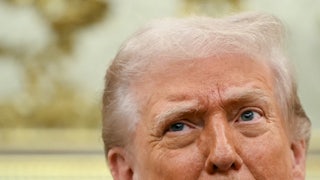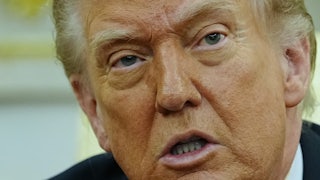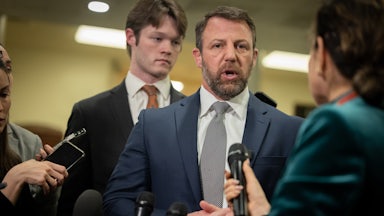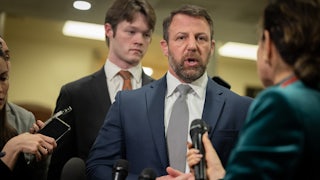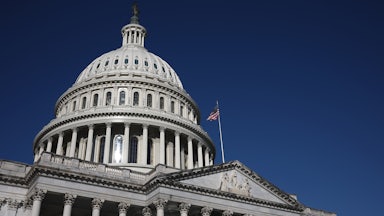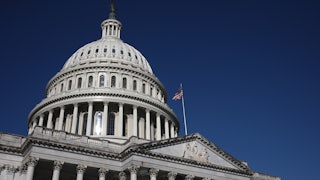This week’s episode of How to Save a Country is the last one. We never intended for this to go on forever, and we think we’ve given our listeners a great introduction to the thinkers and doers out there who are conjuring up the ideas and strategies to get the country to a better place. They can take it from here!
In this last episode, our co-hosts do two things. First, they debate a few points on which they sorta-kinda-mostly disagree—like, for example, the phrase “middle-out economics,” which was coined by Nick Hanauer and Eric Liu a little more than a decade ago and is now used all the time by Joe Biden (and was the title of Michael’s most recent book). Michael, of course, is all for it. Felicia has some reservations. Then they talked about “progressive” (Felicia) versus “liberal” (Michael). And finally, they talked about “freedom,” and whether that word and concept should have a place of preeminence in progressive (er, liberal) rhetoric.
Second, they went back over some clips from some of the more interesting guests, such as Elizabeth Warren, Brad DeLong, Hakeem Jeffries, Deepak Bhargava, Danielle Allen, and more. But really—all the guests were interesting. And so were all the listeners, and we thank you for giving us your time.
Presented by the Roosevelt Institute, The New Republic, and PRX. Generous funding for this podcast was provided by the William and Flora Hewlett Foundation and Omidyar Network. Views expressed in this podcast do not necessarily reflect the opinions and beliefs of its funders.
Michael Tomasky: What are some of the most exciting ideas we’ve probed on this show?
Felicia Wong: And Michael, what do you and I disagree on for real?
Michael: And why do we even care?
Felicia: Right. Why should we be talking about those things? Well, I think it’s because some of our disagreements and some of our agreements are really important for the future of our country.
Michael: I agree, and I think they’re emblematic of debates that are had within the broad left.
Felicia: I’m Felicia Wong, president and CEO of the Roosevelt Institute.
Michael: I’m Michael Tomasky, editor of The New Republic.
Felicia: And this is How to Save a Country, our podcast about the ideas and the people behind a progressive vision for America.
Felicia: Michael, this is our last episode.
Michael: So it is. So it is. We’ve loved doing the show, but we never—either of us—intended for it to go on forever. And there are lots of different ways to do the work to save this country. And, the worst thing is to overstay your welcome. Like Aaron Rodgers with the Jets, an analogy that I know, Felicia, jumped immediately to your mind.
Felicia: I don’t even know what sport that is, Michael. I’m hoping football.
Michael: Yeah, you got it. You got it. And trust me, it’s apt.
Felicia: OK. Well, look, Michael. I’ve learned so much on this show, talking to you and talking to so many smart, and engaged, and committed people.
Michael: I hope we’ve introduced listeners to some new thinkers and some new ideas that they weren’t aware of before and that they got something out of it.
Felicia: Yeah. I think we’ve also woven some of those new thinkers together, braided their ideas together with some really famous and familiar people. People like Senator Elizabeth Warren, Thomas Piketty. So that’s why it’s been really great to do this show. But now for our last episode, I think it would be fun to actually get into a few of the debates that we’ve gestured out over the course of the last few seasons. Because we haven’t really gotten into them. We wanted to present a united front generally.
Michael: Yeah, we wanted to be good hosts and not argue in front of the company. Anyway, we probably agree broadly on most things.
Felicia: We totally do, but now would be the time to dig into some of the things that we debate about that we have differences on. And that’s actually because those debates matter for the left, the center-left, and for the future of our country.
Michael: So, shall we start?
Felicia: Let’s do it.
Michael: Here’s the first one. It’s just a phrase and the phrase is the middle-out. It’s a term that people hear Joe Biden use all the time that describes an economic policy focused on strengthening the middle class, that growth comes from strengthening and giving security and solidarity to the middle class. And we talked about this on our very first episode with Brian Deese, who was then the director of the President’s National Economic Council.
Brian Deese [clip]: The president does say it over and over again, and it’s his way of articulating economic philosophy. I think one way to think about bottom-up and middle-out is in contrast to trickle down.
Michael: Obviously, I like the phrase, as I used it for my most recent book, which was called The Middle Out, The Rise of Progressive Economics in Return to Shared Prosperity, which came out last year. I understand the search for a better phrase, but it’s been a few years now, Felicia, and I just haven’t heard one. We keep talking about how we’re in the post-neoliberal era. Well, post anything is not a slogan, that’s not describing something active and that’s not making an assertion. It’s just a description. So we need a phrase for what we’re trying to do that makes an assertion. And I think the middle out comes as close as anything that I’ve ever heard. It describes in two or three words what the policy is. Middle class. Grow out from the middle class. So I think we ought to just adopt it by acclamation. Have I convinced you?
Felicia: Kind of. Look, I totally understand what you’re saying. And let me just say that this idea of post-neoliberal economics or even supply-side progressivism or industrial strategy, which are all terms that people like Brian Deese use, people like Janet Yellen use, those were never intended as slogans to talk to people who aren’t already in the middle of it. So I totally agree that post-neoliberal, even though many of us talk in that way, that’s not how you would really try to sell anything. No marketing director would ever run around and say post-neoliberal and put it on some banner. But here is why I think middle-out is necessary but insufficient. It doesn’t really describe what we are building toward. It doesn’t have a very concrete North Star. And I think we’re building toward things like better public education, better housing for more people, a green economy, solar and wind and transmission and public transportation. So I am looking for something that describes a future economy that is much more tangible and much more tactile. And middle out, it still doesn’t get me there.
Michael: I’m thinking now about the slogans that have been used and have been effective over the course of history, slogans for political programs and slogans for new economic thinking. OK. So supply-side economics became all the rage on the right and caught on in the country in the Reagan years.
Felicia: Did they really say supply-side or did they really say shrink government, drown it in a bathtub, cut your taxes? I don’t think my dad ever said supply side.
Michael: To me, they popularized it to a certain extent and I don’t think it’s that great a phrase. I think middle-out actually is more evocative and says more. Now let’s talk about the phrase, the New Deal. I mean, is that a great phrase? It’s great to us in retrospect, because we agree with the things it did and stood for. But if you were a quasi-political American in 1933, would that phrase have meant much to you?
Felicia: No, although it actually was a campaign slogan that then did catch on later. So I agree and maybe the search for a perfect phrase is not where we should all be spending our time. I do think middle-out is going to be part of a useful pantheon of things that we
describe. At the same time, I’m sending my kids to college right now, Michael, and I can just tell you that more public higher education, better colleges for all Americans, like that is something very concrete, better housing for all Americans, that is something very concrete. Those are the kinds of things that we must also be able to talk about with a clear vision.
Michael: Yeah. And I will say this. I think Biden falls short in never really explaining what he means by the phrase. He says one sentence, I think the economy grows from the middle out and the bottom up, not the top down. I’d like to hear him follow that up sometimes with a couple of sentences that might go something like what I mean by that is that our friends on the right say you have to choose either growth or equality, that you can’t have both, that if you try for equality, it comes at the expense of growth. We say nonsense. We say that better equality leads to more growth. We say that helping people in the middle will help the people on the bottom and will help the people on the top too. Not as much as they’ve been 40 years because we don’t want that. But we want to help them, we want to help everybody. And it comes from investing in the middle class. If he would just say something like that.
Felicia: Yeah. Investing in the middle class and investing in working people with stronger unions, better schools, more housing, better, greener transportation. I’d love to hear that from the president, but hey, we’ve got the whole 2024 campaign where he can test those things out.
Michael: He’s got a big convention speech to give, assuming he’s the nominee.
Felicia: OK. So he should call us and we’ll tell him…
Michael: He should call us. Yeah.
Felicia: Here’s something that we have occasionally talked about and a lot of people the center-left talk about and it’s this question of progressive versus liberal because I don’t know if you remember this, Michael, but back when we talked to Lilliana Mason—such a great conversation, by the way—you mentioned then that you prefer the term “liberal” over “progressive.” So, make that case for liberal, because for the last decade or more, I’ve definitely been in the progressive camp.
Michael: Yeah. And I understand why. This case is a little more idiosyncratic, but the word “liberal” is so out of fashion and has been since 1980. By the way, who’s the last president to call himself a liberal?
Felicia: I don’t know.
Michael: Don’t know? John Kennedy.
Felicia: Oh. I thought you were going to say Ronald Reagan, but anyway, because you said 1980. I knew that was wrong, by the way. I didn’t know the Jets, but…
Michael: So, 60 years ago, and then in the famous 1980 elections, a lot of these Republican senators beat old liberal senators, Frank Church and Birch Bayh with the same consultant, Arthur Finkelstein, who made these commercials and said “too liberal for too long.” And that’s when Democrats stopped using the word liberal and every time there’s a Democratic presidential primary and there’s 12 Democrats up on the stage and the journalist says, “Would you call yourself a liberal?” And they go, humina, humina, humina, like Ralph Kramden.
Ralph Kramden [clip]: Humina, humina, humina.
Michael: I just want to see somebody take pride in that word. I want to see the word revived. That’s all. I got nothing against progressive, and progressive is more descriptive because the word “progress” is contained within it. Liberal on its own doesn’t really connote anything, and it means like a liberal dollop of ketchup on those French fries too.
Felicia: Freedom fries, Michael. Freedom fries.
Michael: There you go. I get the problems with the word, but I just … I want to use it because I want it to be in use and I want somebody to defend it.
Felicia: Defend all the words that have been weaponized against the left. I get that. Also, before, though, I say a little bit more about this, Ralph Kramden, Michael, the references here are like, OK…
Michael: Even older than Jack Kennedy.
Felicia: Yes, we are going way back into the twentieth century, friends. Anyway, I understand defending things that have been made negative or made into kryptonite. Totally get that. I just think that…
Michael: Another twentieth century reference.
Felicia: OK, fine, fine. But I just think one of my problems with the term liberal, which I also don’t hate at all, one of my problems with it is just, there is a real free market liberalism. There’s a real neoliberal liberalism, that is more conservative, I think, than either you or I are in economic terms. That’s how Europeans understand the term liberal. So that’s why I tend not to use it, but I’ll drop it in on occasion, depending on who I’m talking to. And I think that’s totally fine. But progressive, that’s about progress. We’ve mostly agreed on that as a movement. So I think that’s good.
Michael: So let’s just use both.
Felicia: The last thing that I want to bring up as a real point of debate or contention between us on this show is this question of freedom. Now, maybe our listeners have heard enough from us about freedom, especially after the really awesome conversation we had with Jeff Cowie recently about freedom. But I think I want to bring it up just one more time because what is it that we’re really debating? And why does freedom matter so much to you? I’ll tell you why it matters to me, but I want you to go first.
Michael: Yeah, we need to hash this out. We talk about it a lot, but you and I have never directly hashed it out, so let’s do it. While I was writing my last book, I started thinking about what our side really needs to give to people. What’s the point of all these things we’re trying to do economically? Free or cheap college, paid family leave, all the things that we’re in build back better. and some of which have passed and many of which we’re still trying for. Well, it’s to put money in middle class and working class people’s pockets, it’s to take money from the top and redistribute it downward, which we favor and we should be open about. OK. But then why are we doing those things? Why? And the end argument, it seems to me, is that we’re trying to expand the freedom of working for middle-class people. Rich people have freedom, who said—
Felicia: Wealth gives you freedom.
Michael: Yeah, right. Who said the old thing, the poor man and the rich man are equally entitled to sleep under the bridge. But the rich guy’s not going to sleep under the bridge. And this is another important point to me, the right owns that word, and has offered its definition of freedom, let the free market work and do its magic and everybody will be free. Well, that’s worked for a certain percentage of the people, whether you put that at one or five or 10 or whatever, but it’s certainly no more than 10. And for the rest of the people, that haven’t worked so well. My hometown in Morgantown, West Virginia does pretty well, but you drive 10 miles from it and there are places where freedom is working at the dollar store and having a really hard life. We want to change that. We want to get people to think about that word freedom in a totally, totally different way. I think it’s a word that people respond to. Everybody in the United States of America is raised to love that word. So let’s take ownership of it and change its definition.
Felicia: Sadly, for the debate portion of our show, I agree with that part of it. There are just two things that I would add. First, I take pretty seriously Jeff Cowie’s notion that freedom can have this dark side, freedom to dominate. I don’t want to dwell on it here, but I think that his historical exploration of that is very important, but I actually think that the invocation of that Isaiah Berlin freedom from/freedom to, and we’re all about freedom to, I think that is fine, but I think it actually lacks historical context. It’s sort of ahistorical. Because what I’m interested in is all of the great social movements in American history that have been progressive, that have been left, that have been about more rights for more people, and they too relied on Freedom. The abolition movement was a movement for freedom for enslaved people. The women’s suffrage movement was a movement for freedom for women to participate fully in our politics. And of course, the women’s liberation movement, the civil rights movement, but the women’s liberation movement, that was about liberty and freedom for women in the middle of the twentieth century. Sure, freedom from a kind of oppressive system where women were seen in many ways as economically subordinate and socially subordinate to men, but the idea of liberation, the idea of freedom, that is something that I think has a very rich left progressive history. And I want to reclaim that in addition to the Berlin freedom or even the FDR four freedoms notion. I want that real left version. So that’s what I want when we talk about freedom.
Michael: Well, I think that’s coming back into circulation post-Dobbs because…
Felicia: Exactly. Good point.
Michael: Because the right took away a freedom. I mean, they just plain swiped it away. So now you hear some politicians and people on the broad left using the word freedom more than they have been for a long time. So I think that’s encouraging and I’m all for it. I want them to expand it to include economics and to talk about economic freedom. The way my new hero Josh Shapiro talks about economic freedom.
Felicia: I just want it to be social. And I want us to recognize all of the people who have come before us who have won huge victories under the banner of a left kind of freedom.
Michael: Yeah. Well, I think Shapiro does both. And by the way, for our good news segment, real fast, not only can he fix potholes, he fixed the busiest highway in the U.S. in less than two weeks.
Felicia: Yeah, I knew you were going to say that one, Michael. That was pretty impressive.
Michael: Wow, that guy.
Felicia: So Michael, that was really fun debating those things. It’s always good to actually hear why each of us holds the views that we do. But now let’s talk about some of our favorite moments on the show. Some of the great conversations we’ve had with so many exciting people who had some really big ideas.
Michael: I’ll start with this one. I loved it when we spoke to Brad DeLong in season one. Brad had a new book at the time, Slouching Towards Utopia, An Economic History of the Twentieth Century. I liked what he had to say about the different kinds of neoliberalism: that they don’t always look or sound the same way, don’t stand for necessarily the same things. He broke it down into two main strands, right neoliberalism and left neoliberalism. He describes right neoliberalism this way.
Brad Delong [clip]: Basically it’s the market giveth. The market taketh away. Blessed be the name of the market. That is, it’s the belief that if property rights are cut at the joints properly the market economy then crowd sources the problem of increasing production. And so effectively mobilizes brain power to making a richer world in a way that no other system can. But I think its most powerful advocate, Friedrich von Hayek warned, accepting what the market gives to us as blessed comes at a horrible price. A market system cannot provide any form of social justice and if you demand that it be tweaked and managed to do so would wreck the market’s ability to do what it could.
Michael: And this was his description of left neoliberals.
Brad Delong [clip]: The same word was used more or less in the 1970s to say that the post–World War II system had become over bureaucratized and too encrusted with rent seeking groups, with politically strong clients that had weak claims on government programs and support, and that there was a good deal of truth in von Hayek’s observation that a properly constructed market economy crowd sources the solution to an enormous amounts of problems. That you’re not having some bureaucrat at the center or some central planner who has next to know information, setting out what has to be done. You’re creating a flexible system in which the people on the spot with the information are empowered to act and to act for the common good as long as you can properly tweak things so that individual incentives are to act for the common good.
Michael: I mean, Brad has definitely burned his draft card. There’s no doubt about that.
Felicia: OK. I’m just picturing that in my head.
Michael: This is the fight—it’s not only against the right. It’s changing a lot of presumptinos that even people at the center and even people on the moderate left hold about the proper role of government.
Felicia: Yeah. And yet there is one thing about right neoliberalism that probably needs more legs. Can you believe I’m saying this, Michael, here on the closing moments of our show? But that’s actually because there are things about government, too, that need to be changed. Government can become, has become, too encrusted. And that’s something that Sabeel Rahman talked about in his attempt to streamline the regulatory state to make sure that poor people don’t have this time tax that it’s so hard for them to get unemployment insurance or to get their food stamps or SNAP benefits. We do need to make sure that the state and government actually work.
Michael: People need to see it in their lives and these presumptions aren’t really going to change until that happens. And it’s not a short project by any stretch of the imagination.
Felicia: We did talk to so many people in different parts of government, in different parts of the current administration, and we also talked to people in Congress, people like Senator Elizabeth Warren and Leader Hakeem Jeffries. And in fact, I want us to revisit this clip from Warren.
Elizabeth Warren [clip]: You build a stronger country, you build a more prosperous country, you build a more stable country by investing in your people and that’s how you have to think about this. Look, I get market economies, I support market economies. I’ve got rules in place. I think they can produce a lot of wealth, but it’s ultimately about how we invest in our people. And so for me that means education, but it means doing things like treating childcare as infrastructure.
Michael: Her emphasis on investing in people is really key. It’s basically middle-out economics. She doesn’t quite use the phrase, but that’s basically what she’s saying. It’s popular. It’s more popular than it had support or has support in the Congress of the United States. But one of these days that’ll get sorted out.
Felicia: That’s the optimist in you, Michael. I do think that one of my absolute favorite conversations was a much more recent one, and that was the conversation we had with Thomas Piketty, because he really got to the core of it. He got to the core of what, at least in my estimation, the problem is with today’s political economy.
Thomas Piketty [clip]: Generally speaking, we have, collectively in the U.S. and in Europe, managed to reduce somewhat the inequality of income throughout the twentieth century. But as far as the inequality of wealth is concerned, we still have enormous concentration of wealth. So that’s a simple answer. So why we need a wealth tax, which is that, if you only have an income tax, you can redistribute income to some extent, but if you don’t have a wealth tax, you cannot think of redistributing wealth.
Michael: Again, this is a point on which the political system is lagging behind public opinion. You remember that study a few years ago, one of the people was from Duke University. They asked people how much wealth they thought the top one percent ought to own. When people were asked what percentage of the wealth should the top own, it was about half what they actually own a little bit more than, or maybe a little less than half—
Felicia: One percent actually owns something like 70 percent.
Michael: So yeah. There’s support out there, however latent, for pretty big changes in our economic presumptions and policies. It’s going to take the political system yet a little while to catch up.
Felicia: One last thing I want to do, Michael, is to take a look back at some of the big and, frankly, radical ideas that have come up on this show, and, kind of a rapid fire, I’d love for you to articulate what would have to happen politically, in the real political world, for some of these ideas to become policy.
Michael: Oh boy. All right. I’ll give it a shot.
Felicia: Oh, come on, Michael, you can do it. OK, so first, here’s Deepak Bhargava’s big idea on immigration.
Deepak Bhargava [clip]: So the idea is that our North Star goal would be to be the most welcoming country on earth for immigrants and refugees. And to do that, we would actually set an immigration target. The target I propose is 75 million people over the course of a decade. So in the Obama years, we were probably admitting a million a year. We would go to admit something like seven or seven and a half million per year to reach that target over a decade with full labor rights and the ability to naturalize and to bring family members to be full members, participants in our democracy and society.
Michael: Yeah. I remember that. Well, what would have to happen? Gee, a lot of things. The Republican party would need to lose more elections and see that their position on immigration is one of the reasons that 2012 election when 30 something Republicans in the U.S. Senate did vote for a compromise, reasonable immigration package. And then of course they went completely in the opposite direction and went to Donald Trump. So they’d have to take a licking and realize that demographic destiny is against them.
Felicia: Next, we have a quote from Amy Kapczynski, the Yale lawyer, about court reform.
Amy Kapczynski [clip]:
Court reform can look like adding justices. It can look like life terms. So this ridiculous idea that people can serve for 40 or years, even longer, in a position of such personal power in a democracy, and obviously, I think doesn’t make sense to a lot of people, doesn’t make sense to me.
Michael: Yeah. Well, this is a pretty tough one. Something that’s in the Constitution like that it’s hard for people to change. However, the number of justices is not in the Constitution. That can be changed to anything. A couple of presidents have tried; they’ve failed miserably, so it’s just really tough. But I do think that if this conservative court continues to hand down decisions, like Dobbs this term, then I think they may get so unpopular that you may get enough people in the middle to agree with people on the left that something has to be done and there may be enough public support for it. And it may someday become court reform, and may become a popular issue that some candidate rides to victory.
Felicia: So our next quote is about a real pet cause of yours, Michael, and it’s Danielle Allen talking about expanding the size of the House of Representatives. So here’s what she said about that.
Danielle Allen [clip]: So it’s super, super interesting, the difference that this makes, and it is counterintuitive to people. The House of Representatives has the job of communicating the voice of the people, and therefore has the greatest burden of responsiveness to the people, the greatest burden of actually delivering constituent services, directly to people, and so the greatest immediate accountability of the people, or in principle, that should be the case. So with large districts, you lose a lot of those things. You lose that sense of connection to your representatives and responsiveness. It’s harder to hold representatives to account because it takes more money to run in a bigger district. And so money starts to matter more in politics, you go down the line and you can see the effects. Germany has a particularly large legislature. They’ve got about 735 legislators, despite being about a third the size of our country. And among OECD nations, they have one of the lowest levels of political alienation and disaffection in their populace. And my hunch is that this is directly correlated.
Michael: I’m so totally for this. I think she’s probably right about Germany. And I think if you look down the list of OECD nations that have single member districts and see how many citizens or residents, I should say, each of those legislators represents, they’re all far smaller than the U.S. where the number is north of 700,000. In the U.K., for example, each member of parliament represents 100,000, or 110,000. So, it’s a crisis and something really has to be done. And by the way, I believe this can also help reduce polarization too. And a lot of people think that because you would expand it through multimember districts and rank choice voting, both of which I won’t go into the details here, we don’t have the time, but both of which potentially can produce less extreme candidates. And this is something that can be done by an act of Congress. So it’s just, if a certain party has a large enough majority, they can just do it.
Felicia: Immigration reform could be done by an act of Congress too, but anyway, we won’t get into that, Michael. All right. So folks, those are just some of the really big ideas that have come from the conversations we’ve had on this show. And sadly now, I think, has come the time to say goodbye, and we will see you again, somewhere, sometime. Michael, you and I wanted to do this show because, sure, there are lots of progressive superstar activists and politicians, and we’ve been really fortunate enough to have some of them on the show, but there are also so many people working hard every day in their particular fields on a more prosperous, more secure, more democratic vision of America.
Michael: Yeah. There’s just loads and loads of such people across all kinds of fields, in government, nonprofit sector, academia, in the activist world. And one of the points of doing this show is to try to show people that political change takes, dozens, hundreds, probably thousands, a few thousand anyway, a few thousand people in this country who wake up every morning and think about their little piece of this and how we’re going to get there. So that by the time a president like Joe Biden starts talking about the things he was talking about in Build Back Better, it’s a result of years of work that thousands of people have done.
Felicia: It’s a long game, but we have a lot of players. I hope that in the years to come, we can look back on this capsule of conversations that we’ve had over the last few seasons and see that we captured a moment in time. Right on the cusp of changing the economic paradigm, but before that paradigm was fully instantiated. And I hope that we can see these conversations as a prelude maybe to a new way of organizing, organizing our economy, organizing our democracy, organizing and fighting for our vision of freedom, which me and you always say this, Michael, is really important because these three concepts are, in fact, completely related.
Michael: As I wrote in my book, it’s all one argument. They’re not three separate arguments. So speaking of the future, where can we find you and your work in the months and years ahead?
Felicia: Well, you can follow me on Twitter @FeliciaWongRI. I’ve also got a couple of pieces I’m working on, Michael. Actually, one that I just published for you at Democracy on the new productivism. But I’m working on a bunch of research now that will connect democracy and political economy through the lens of race and identity. So folks can read that when it comes out later this year. What about you, Michael?
Michael: Well, of course, I’m at The New Republic. I’m the editor, but I also write a lot there. I have a newsletter called Fighting Words, which people should subscribe to. It’s free. It has a fun quiz at the end every Friday. I do more editing at, as you just mentioned, Democracy, a Journal of Ideas. We haven’t talked about Democracy
journal very much on this show, but most of our guests, or many of them anyway, have written for the journal. Rhiana Gunn-Wright, Deepak Bhargava, a whole raft of them…
Felicia: Amy Kapczynski. Has anybody really not written for Democracy?
Michael: Anybody who’s anybody, you know.
Felicia: Anybody who’s anybody. That’s right.
Michael: But anyway, The New Republic is where you can find my byline most of the time. Check it out. And I tweet @mtomasky. So keep an eye on that too.
Felicia: Yeah, well, again, as long as Twitter remains useful. But that’s a whole other show, Michael, which we just don’t have time for because we’re ending the show. It has been so wonderful hosting it with you. I think the show now lives on with all of our listeners, with all of you out there in podcast land, in whatever form that takes, we encourage you to keep talking about politics in a hopeful way with your friends, join a cause, become a member of something that’s good, run for office, work for somebody who’s running for office. Whatever you’re doing out there, I hope and trust that some part of this show is going to stick with you.
Michael: Yeah. I mean, once we expand the house to 800, go run.
Felicia: Go run, go work for the people who are running. Anyway, I just want to end with a few special thank yous today. To the whole team at PRX, to Thao Nguyen, our faithful fact-checker and script copy editor at The New Republic, and to Emily Cooke, Kym Blanchard, and Lorraine Cademartori at The New Republic as well. And I’ve got to give a big shout out to my colleague DeDe Dunevant at the Roosevelt Institute. She’s super behind the scenes, but she’s just been an instrumental part of this show, and she refused to take a credit really early on, but as we’re ending the show, we’ve got to really give her her due. And the whole comms team at the Roosevelt Institute. Matt Hughes, Keesa McKoy, Sonya Gurwitt, and Ariela Weinberger.
Michael: And as always, we say thanks to our script editor, Christina Stella, our producer, Marcelo Jauregui-Volpe, our lead producer, Alli Rodgers, and our sound engineer, Pedro Rafael Rosado, and our executive producer, of course, Jocelyn Gonzales.
Felicia: Big shout out to all our guests. Thank you so much for joining us and being a part of our show and actually a part of our lives.
Felicia: Our theme music is courtesy of Codey Randall and Epidemic Sound with other music provided by APM. How to Save a Country is made possible with support from Omidyar Network, a social change venture that is reimagining how capitalism should work. Learn more about their efforts to recenter our economy around individuals, community, and societal well-being at omidyar.com.
Michael: Support also comes from the Hewlett Foundation’s Economy and Society Initiative, working to foster the development of a new common sense about how the economy works and the aims it should serve.

